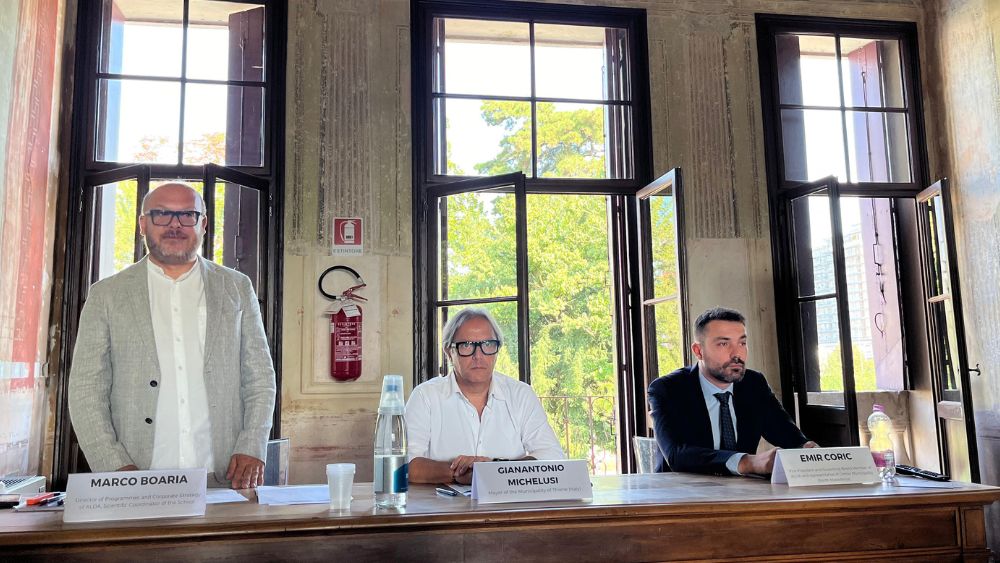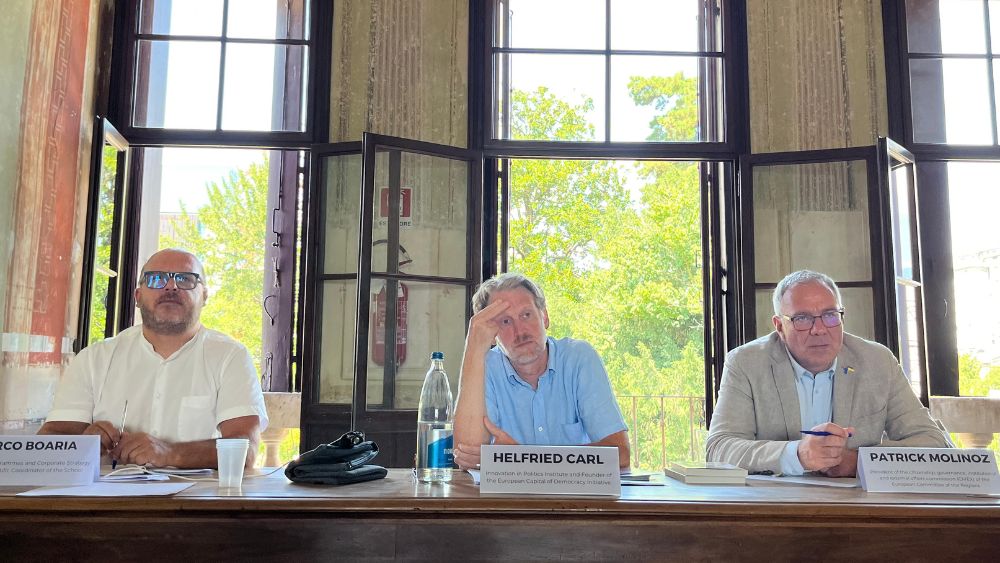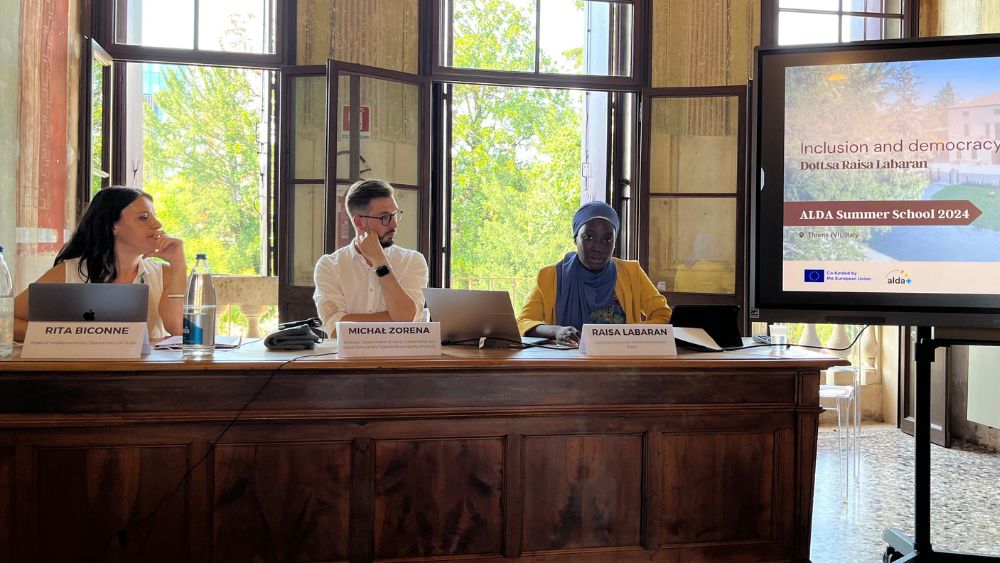Summer School Diary – Day 1
The first edition of the ALDA Sumer School on Local Democracy kicked off today, on Wednesday 28th of August, when the over 30 participants arrived in Villa Fabris, in Thiene (Italy) ready to start a fruitful day of discussion on the history and development of local democracy over time to the present day. The atmosphere was immediately warm and welcoming: the participants got to know each other and their different backgrounds were an opportunity to share and reflect on the different experiences of citizen participation in Europe.
Indeed, the Summer School is characterised by a distinctly international spirit, with participants and experts from 12 countries in Europe, the Balkans, the neighbourhood and Africa. Moreover, as a matter of fact, participants are mainly people from civil society organisations involved in the promotion of active citizenship and members of municipalities and regions.

The Summer School began with institutional greetings presented by Gianantonio Michelusi, Mayor of the Municipality of Thiene, (Italy); Emir Coric, Vice President and Governing Board Member of ALDA and representative of Centar Municipality (North Macedonia); and Marco Boaria, Director of Programmes and Corporate Strategy of ALDA and Scientific Coordinator of the School.
Then, Patrick Molinoz, President of the citizenship, governance, institutional and external affairs commission (CIVEX) of the European Committee of the Regions; and Carl Helfried, Innovation in Politics Institute and Founder of the European Capital of Democracy initiative, they brought us deep into the discussion
During his intervention on “Innovation on local democracy and current trends”, Mr Molinoz started with a historical overview of the development of local democracy. “If we look at different times of history, we could agree that democracy, real democracy, is what helped people to have a better life: only democracy can help us, through a humanistic approach, to reach to a better life for as many people as possible.” He then provided insight on the specific situation of France, where, to his view, “the real problem of participation is that people don’t really know how a democratic process works, and this is essential to understand the reality of the decision-making process, essential to prevent people from being disappointed when some promises made by politicians are not kept”.

On another note, during the panel “Innovation on local democracy and current trends”, Mr Helfried outlined the main challenges democracy is currently facing, starting from the very democracy, since “democracy itself is a challenge, both for voters and elected representatives alike. And multi-level democracy is even more challenging! But all in all – continues Mr Helfried – Democracy shows better results than other poliical forms of governance, and this is also testified by the fact that democratic countries are more attractive than non-democratic ones”. On the innovation side, Mr Helfried explained how in 2019 the idea of a new concept was born; a project implying a positive competition among cities in the field of citizens participation processes. This project is reality today, being the European Capital of Democracy (ECoD).

The afternoon featured speeches reporting direct experiences of local governance, by Michał Zorena, Director of the Department of Local Cooperation and Social Innovation of Gdansk Municipality (Poland) and Raisa Labaran, Municipal Councillor of Brescia Municipality (Italy).
The former started with a theoretical background on participation and then moved on to talk about the pillar of participation, which is about “sharing the power: all stakeholders want to have the power to decide, but what comes with the power is responsibility – and he continued– so the question for the various stakeholders should be: are you prepared to share the power and, with this, the responsibility?”
Ms Labaran delved into the concrete challenges that the municipality of Brescia faces every day, namely migrant inclusion. “Our approach is space-based – explained Ms Labaran – and starts from the view that pretty spaces where people can feel safe contribute to the common welfare for all the citizens. We are working on space-shaping processes through which people can feel part of the city”.
Then, after a fruitful speed networking, which helped participants to get to know each other better, the day ended with a field visit to the Municipality of Thiene, where participants were welcomed by the Mayor himself, who guided us through the premises of the municipality and outlined the main projects the city has been working on to improve local governance and citizen participation.
And so the first day came to an end, with participants saying they were very happy with this start and eager to take advantage of all the knowledge and opportunities the summer school will offer them from now until the end!